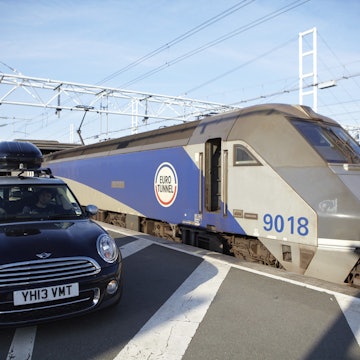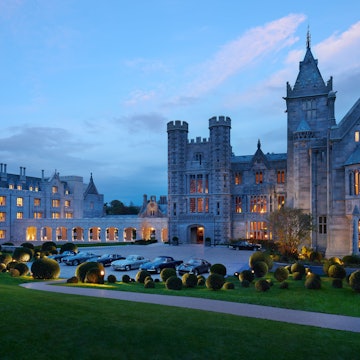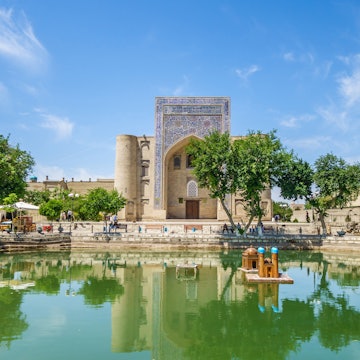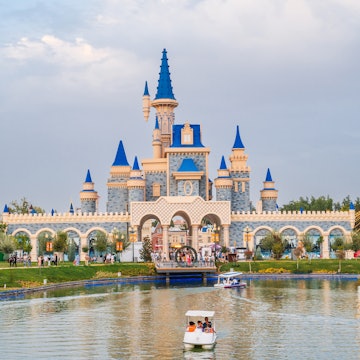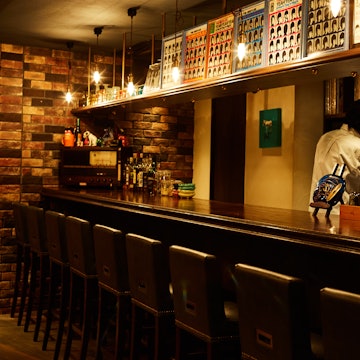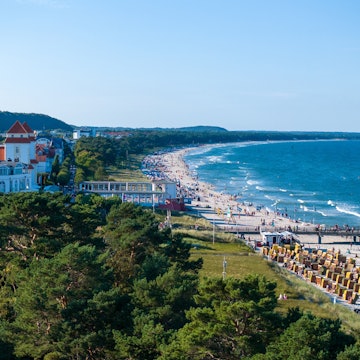
A first time guide to the quirky French city of Nantes
Jul 16, 2023 • 7 min read

Begin your Nantes tour at the ornamental fountain in the beautiful Place Royal © RossHelen / Shutterstock
When was the last time you rode a three-storey mechanical elephant? Or treated yourself to a deliberately burnt pastry? Nantes, where American ragtime jazz first landed on European shores, is not your usual city.
Birthplace of Jules Verne, Nantes transformed itself from France’s major slavery port, to a youthful, energetic, art-loving city where tradition, a forward-thinking government, and whimsy, blend together in a multicultural, yet very French, enclave. Poised on the Loire, 30 miles from the Atlantic, the map says it’s in the Loire-Atlantique, but its heart is Breton and the street signs are Breton and French.
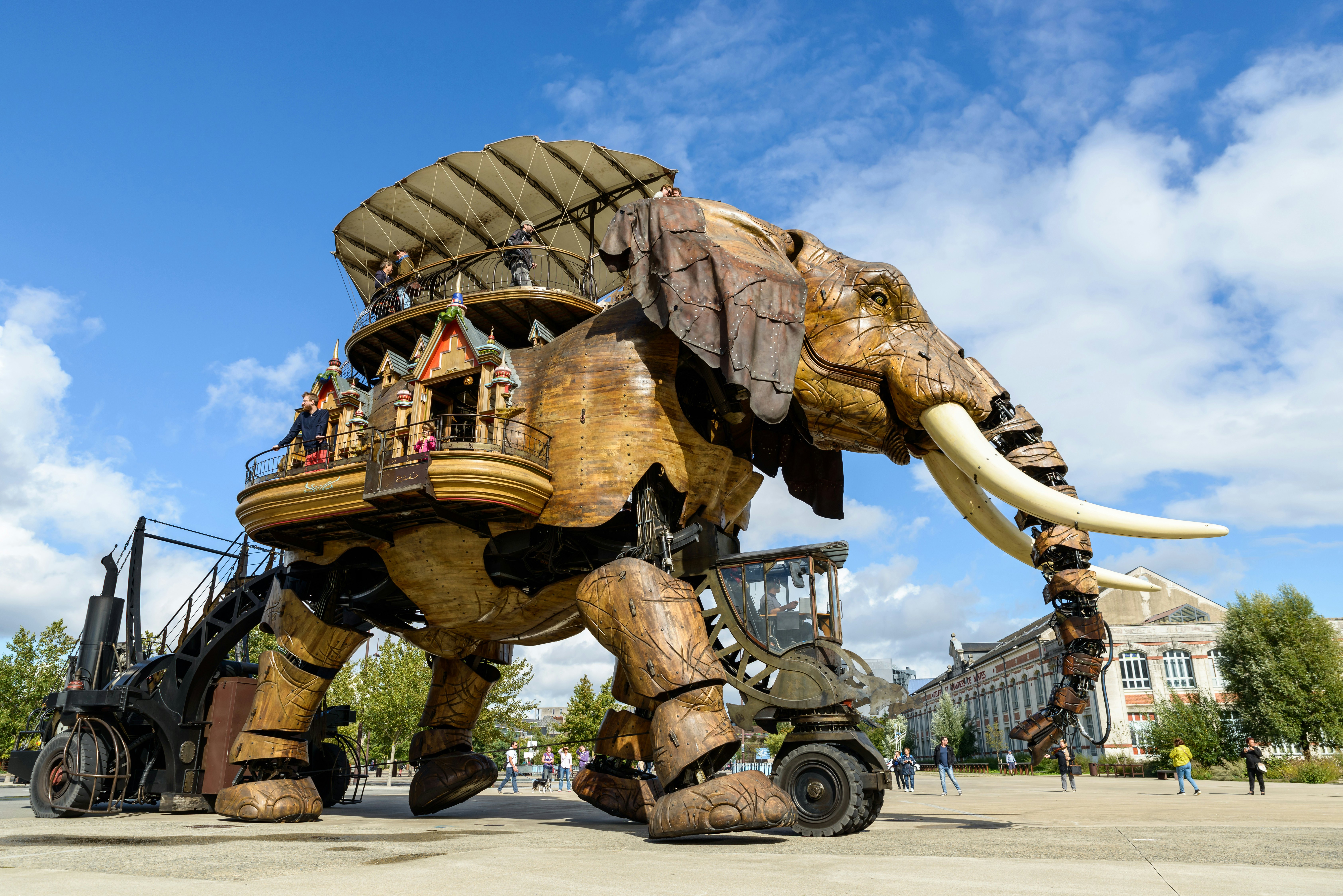
Is Nantes good for a city break?
Nantes is an ideal city break: with lots to do but never overwhelming. It is rich in glorious spots to simply watch the world go by, plus it has a powerful history and culinary surprises. Not lacking in grandeur – but with an inbuilt sense of humor and unbridled passion for art. It’s kid friendly and LGBTQIA+ friendly. And while only just over two hours by train from Paris, Nantes remains largely under the tourist radar.
When is a good time to visit?
Nantes enchants year-round, but the best time to visit is May to June when blossoms perfume the warming air and it seems like the Nantais find every excuse for celebration. Easy-going Nantes is a comfortable-shoes town. October to March can be cold so bring layers and a raincoat.
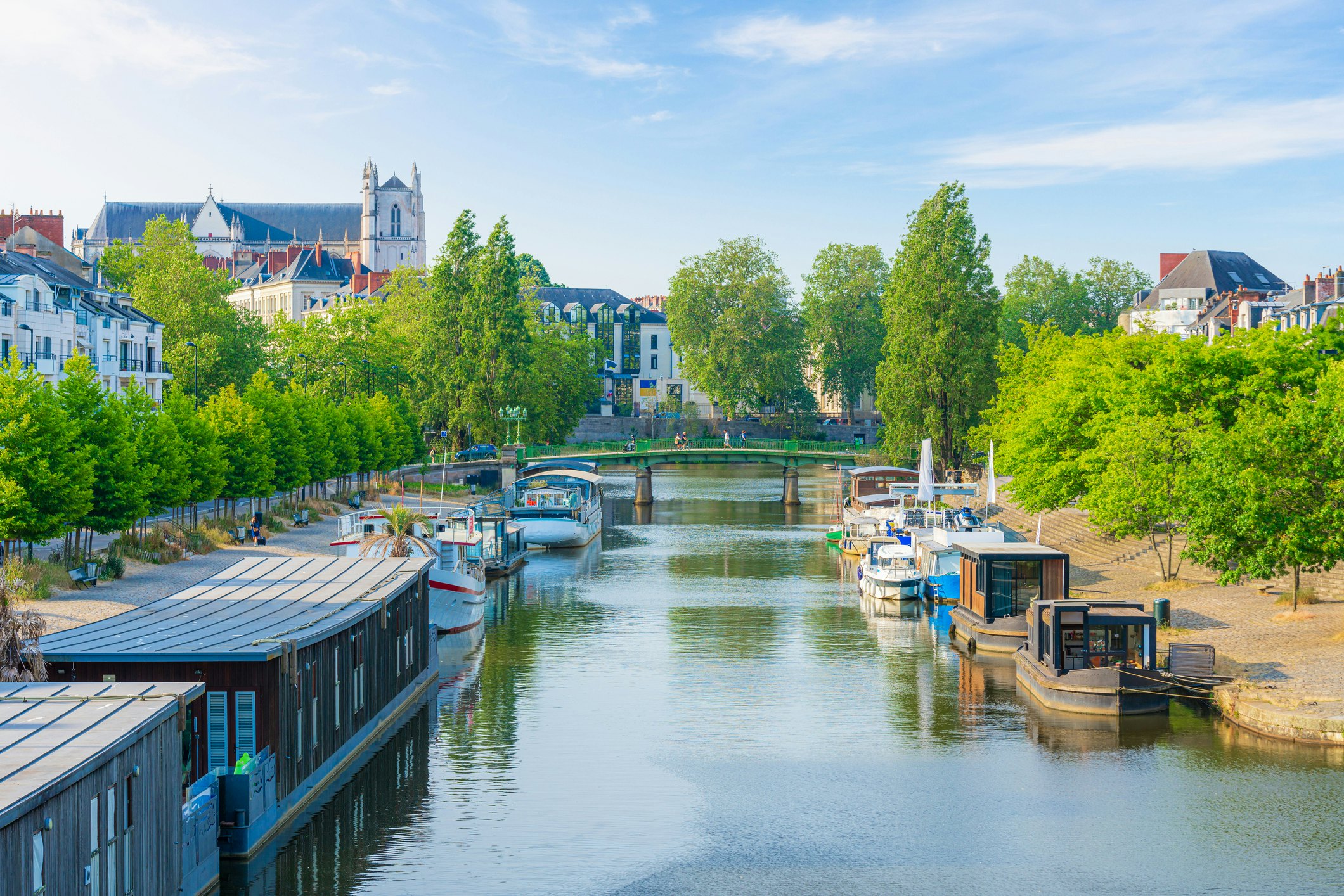
How to save money in Nantes
Many of the best things in Nantes are free. Known as the city of 100 parks, you never have to walk far to a peaceful perch. Fancy picnic lunch in the courtyard of the fairytale Château des ducs de Bretagne? No charge.
Most museums are free the first Sunday of every month. On weekends, city trams and buses are free too. Across from the Chateau’s moat bridge, pop into Le Voyage à Nantes for excellent free guidebooks, up-to-the moment tips and a good paper map.
A 22km green line painted on the sidewalk leads you on an eclectic tour of wacky, inspiring, evocative art, history, and culture, with approximately 100 artworks by different artists.
The Pass Nantes (from €27 for a solo traveler for 24 hrs to €225 for a 7-day family pass) makes life easy with a bounty of worthwhile discounts and free admission to more than 50 museums and activities.
Local tip: Opening and closing times for many activities vary throughout the year and on holidays. Check before you go.
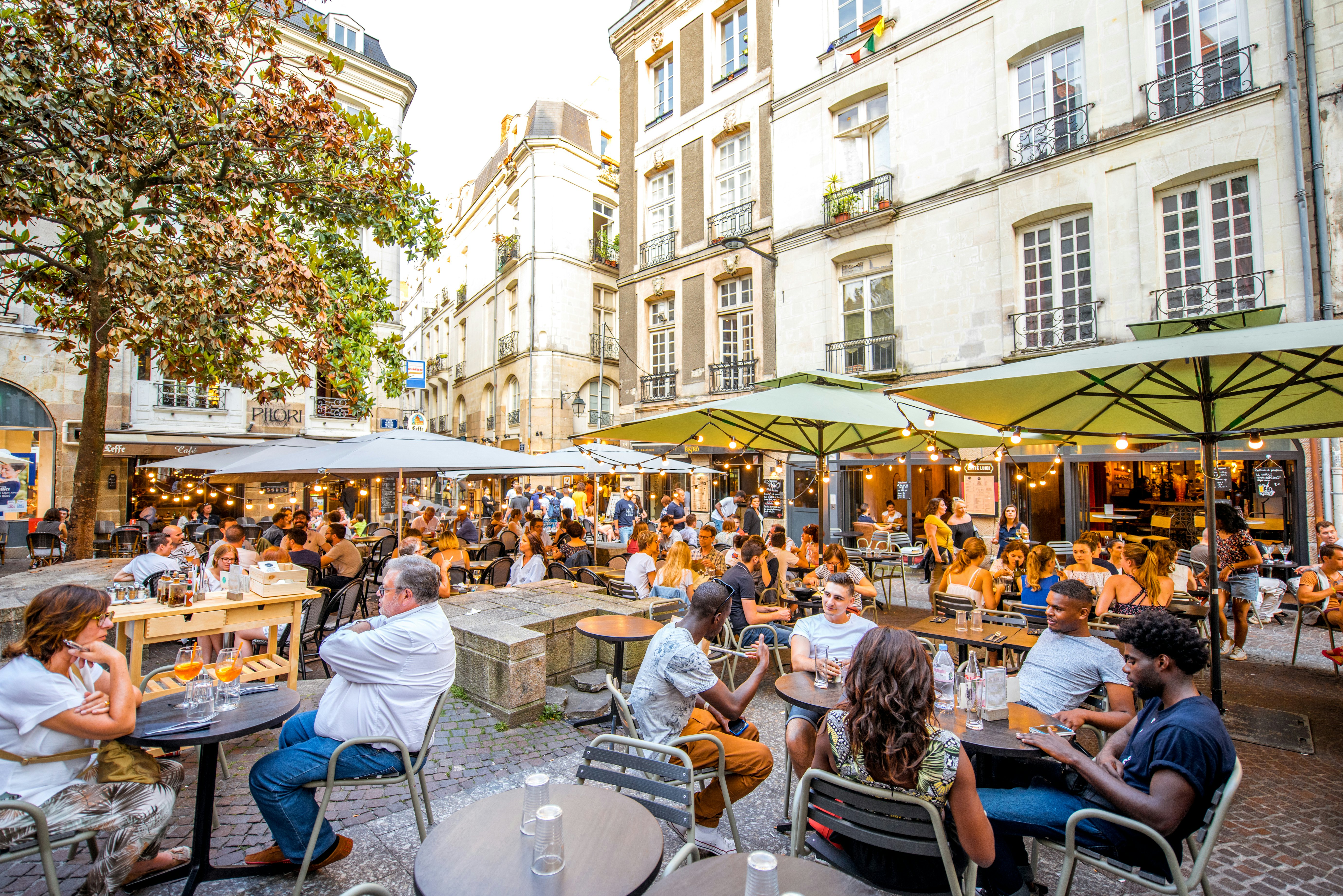
Where to eat in Nantes
For food, go early to the Talensac covered market. Gather all the farm-fresh, fantastic food you crave for meals and indulgent snacks. Prices are modest unless you go wild. Try regional Breton specialties like crêpes or galettes and fresh-caught seafood. Also seek out tiny restaurants just off Place du Bouffay for authentic international cuisines. The downloadable Les Tables de Nantes offers a comprehensive and well-assembled guide to Nantes dining at moderate to deluxe prices. Coffee fanatics head to Café Penche.
Where to stay in Nantes
It’s best to try to stay in the historic centre-ville if you can. Hotel prices fluctuate considerably so book ahead. Voyage à Nantes lists intriguing options from family-friendly to artist-designed suites at a range of prices, or maybe you’d like to stay in a four-star hotel in a converted church for €190 to €400.
Getting to – and around – Nantes
It’s a quick hop from the international Nantes Atlantique Airport into the historic centre. Every 20 minutes there’s a direct Navette Aéroport bus to Nantes Gare Sud for €9 (note: it only takes cards, not cash). It's also included in the Pass Nantes.
Within France, SNCF runs roughly 18 trains a day between Paris and Nantes. Book ahead for best value. The journey takes around two hours, but check both departure time and duration.
Nantes is an environmentally-conscious walkers’ city with respectful attention to accessibility needs so a car is unnecessary. The Nantes Pass includes trams and buses. Individual tickets are €2.50 for one hour. Rental bikes are also available.
How much money do I need for Nantes
Good bottle of the local wine, Muscadet: €9
Coffee: €2.5-5. Take-away sandwich: €5-10
Pastry: under €5
Self-catering apartment: average €75
Four-star hotel: €120 to €270
Two- to three-star hotels: €90 to €170
Camping: from €37

Top things to do in Nantes on 4 easy mini-itineraries
Steampunk Menagerie
Grab Tram line 1 to Chantiers Navals. Take in the view of this vibrantly reclaimed industrial area as you cross the Loire to a nature-lover’s steampunk paradise called Les Machines de l’Île. It’s family friendly, but you don’t need children to have your mind blown by the imaginative mechanical genius behind the astounding rideable sea creatures of the Carrousel des Mondes Marins. Ride the world’s first “eco-friendly mechanical pachyderm” as it wanders the grounds, spraying passers-by with its trunk. If Leonardo da Vinci were alive today, this is where he’d work. Stroll down Quai des Antilles to the Hangar à Bananes, a tropical fruit warehouse turned waterside hangout with unfussy dining, a joyous playspace, an unusual bookstore and HAB art gallery.
Talensac Market and a Japanese Versailles
Stop at Talensac Market early, nab some piquant pink and white radishes, and try the cheeses! Do not neglect your pastry cravings: local delights include Gateau Nantais and Far Breton. And airy burnt-top Tourteau Fromagé (a traditional wedding treat in Poitou-Charentes) is heavenly at Le Banc Bleu. In season, Damien Rio offers more strawberry varieties than you ever knew existed plus prize-winning jam. On weekends, cheap, chic fashions cost 20% less than the same thing in Paris. Head along the nearby Erdre River to Île de Versailles and wander the paths of a serene Japanese garden. You can also rent a little boat to noodle around on the water.
Jardin des Plantes: Nantes Botanic Gardens and beyond
Where else can you stumble out of a train station into one of the most distinguished botanical gardens in France? With waterfalls, ponds, rolling lawns, 10,000 international plant species, a playground and an outdoor cafe, the Jardin des Plantes (created in 1807) is a refuge from stress.
On nearby Rue Clemenceau, the elegant Musée d’Arts de Nantes will surprise you with brilliant artists you haven’t heard of as well as household names. Affordable Café du Musee is “orchestrated” by a Michelin-starred chef.
Pass archaeological remnants of the 3rd to 15th century Nantes at Porte Saint-Pierre to the Cathedrale Saint-Pierre-et-Saint-Paul. Begun in 1434, it was ravaged by fire in 2020 and is temporarily closed but still majestic. Walk down cobbled Rue Mathelin Rodier toward the Chateau. Vegetarians adore Terra Vega (moving to a new location shortly). Next door, everyone loves to gape at the swords in the window of Comptoir du Chateau.
Cross the drawbridge over the moat to the 15th century Château des ducs de Bretagne, once home to the beloved Duchess Anne. It now houses the abundant collections of the Nantes history museum. The museum is unflinching about Nantes’ role in the slave trade, lighthearted about local LU biscuits, and compelling as it reveals Nantes’ multi-faceted WWII experience. The panoramic rampart views, courtyard, and grassy moat area are all free.
From mid-May, pamper your tastebuds with local fresh strawberry sorbet at La Fraiseraie across from Galeries Lafayette on Rue de la Marne. Cafe culture is at its lazy best at Place du Bouffay. Notice Philippe Ramette’s relatable statue of the guy in the suit balancing halfway over the edge of his plinth.
Heading back toward the Gare, detour at the arty hot-spot Le lieu Unique, an architectural confection that looks like a pastel chess piece.

Glamourous Graslin
Between Place Royale and Graslin, spot L’Univers Café Speakeasy where, in February 1918, the 369th Infantry’s Harlem Hellfighters Band wowed the Nantais with the first jazz concert in Europe.
Grandiose 19th century Passage Pommeraye is a deliriously-ornamented shrine to shopping that’s worth ogling even if you hate to shop.
The Opera House is glorious, with welcoming steps to sit on in true Nantes style. Across the plaza, lusciously-tiled art-nouveau brasserie La Cigale was a hangout for surrealists and cinema types. Around back, stroll between mansions along the mid-19th century Cours Cambronne.
On Rue Voltaire, find the Museum of Natural History, which is old-fashioned in the best sense with a quirky, welcoming park out front.








